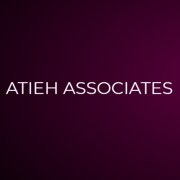Best Tax Increment Financing Lawyers in Tehran
Share your needs with us, get contacted by law firms.
Free. Takes 2 min.
List of the best lawyers in Tehran, Iran
About Tax Increment Financing Law in Tehran, Iran
Tax Increment Financing (TIF) is a public financing method that is used to subsidize community improvement projects, urban redevelopment, and other infrastructure projects. While TIF is well-known in many parts of the world, Tehran, Iran has been exploring its application in recent years to boost investment in key areas and stimulate economic growth. TIF works by capturing the future tax benefits of real estate improvements to pay for the present cost of those improvements. This can provide an incentive for private developers to engage in projects that will ultimately increase the value of property and promote urban development.
Why You May Need a Lawyer
Engaging in TIF projects in Tehran can involve complex legal and financial arrangements. Here are several reasons why you might need the help of a lawyer:
- Understanding Local Regulations: Navigating the specific TIF laws and regulations that apply in Tehran requires specialized knowledge.
- Contractual Assistance: Developing legally sound contracts that protect your interests and adhere to local laws.
- Negotiations: Engaging in negotiations with government bodies, developers, and financial institutions.
- Compliance: Ensuring that all development activities comply with municipal and regional economic planning goals.
- Dispute Resolution: Representing you in any disputes that may arise during the course of the project.
Local Laws Overview
While exact legislation regarding TIF in Tehran is still developing, there are a few key legal aspects to keep in mind:
- Approval Processes: TIF projects must receive multiple levels of governmental approval, from both local and national authorities.
- Public Benefit Requirements: Projects need to show how they will provide public benefit, in terms of infrastructure improvement and economic development.
- Financial Structures: Careful structuring of the financial aspects is critical to ensure that anticipated tax increments support project financing.
- Zoning and Planning: Adherence to municipal planning and zoning regulations is essential.
Frequently Asked Questions
What is Tax Increment Financing (TIF)?
TIF is a method of funding public infrastructure and redevelopment projects by capturing the anticipated increase in tax revenue generated by the resulting increase in property values.
How does TIF work in Tehran?
In Tehran, TIF involves collaborations between the city government and developers where future tax increments are used to fund current development projects, although practical details are evolving.
Who can initiate a TIF project?
Both governmental bodies and private developers can propose TIF projects, often requiring joint partnerships for execution.
Are there specific zones where TIF can be applied?
TIF is generally applied in designated development or redevelopment areas as determined by urban planners and governmental authorities.
What are the potential benefits of TIF in Tehran?
Benefits include economic revitalization, improved infrastructure, and enhanced urban landscapes, which are designed to attract more investment and development.
Are there risks associated with TIF projects?
Yes, risks include potential delays, cost overruns, or insufficient tax increments to cover project costs, requiring careful planning and financial forecasting.
How are disputes typically resolved in TIF projects?
Disputes may be handled through negotiation, mediation, or legal proceedings, emphasizing the need for precise contractual agreements.
Do TIF projects affect local taxes for residents?
Generally, TIF focuses on future tax increments from increased property values, not on raising current local taxes.
Are there environmental considerations in TIF projects?
Yes, projects must adhere to environmental regulations, and impact assessments are often required to ensure sustainable development.
How long do TIF projects usually last?
The duration can vary depending on the complexity of the project, but TIF agreements typically last 15 to 30 years.
Additional Resources
Several governmental and non-governmental organizations can provide additional information and support regarding TIF in Tehran:
- Tehran Municipality: Offers guidance and regulations on urban development projects.
- The Iranian Ministry of Economic Affairs and Finance: Provides information on economic policies and incentives related to TIF.
- Chambers of Commerce: Provide networking and informational resources for developers and businesses considering TIF projects.
Next Steps
If you need legal assistance with TIF, consider taking the following actions:
- Consult a Legal Expert: Seek lawyers who specialize in property development and TIF.
- Research Local Developers: Engage with developers who have experience with TIF projects in Tehran.
- Attend Workshops or Seminars: Participate in events related to urban development financing.
- Stay Informed: Keep up to date with changes in TIF regulations and policies in Tehran.
By taking these steps, you can ensure that your involvement in a TIF project is both legally sound and aligned with regional development goals.
Lawzana helps you find the best lawyers and law firms in Tehran through a curated and pre-screened list of qualified legal professionals. Our platform offers rankings and detailed profiles of attorneys and law firms, allowing you to compare based on practice areas, including Tax Increment Financing, experience, and client feedback.
Each profile includes a description of the firm's areas of practice, client reviews, team members and partners, year of establishment, spoken languages, office locations, contact information, social media presence, and any published articles or resources. Most firms on our platform speak English and are experienced in both local and international legal matters.
Get a quote from top-rated law firms in Tehran, Iran — quickly, securely, and without unnecessary hassle.
Disclaimer:
The information provided on this page is for general informational purposes only and does not constitute legal advice. While we strive to ensure the accuracy and relevance of the content, legal information may change over time, and interpretations of the law can vary. You should always consult with a qualified legal professional for advice specific to your situation.
We disclaim all liability for actions taken or not taken based on the content of this page. If you believe any information is incorrect or outdated, please contact us, and we will review and update it where appropriate.
















